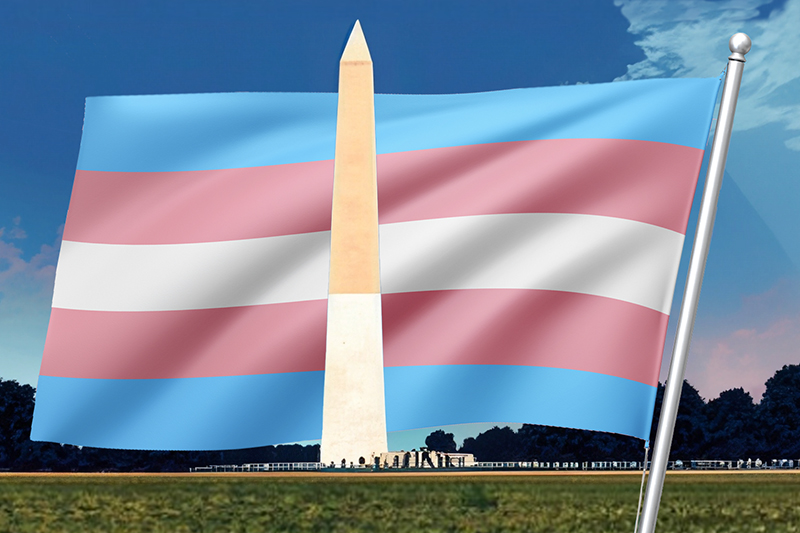Supreme Court’s refusal to hear student debt collection case is good news for transgender students
Legal precedent that was being challenged was the foundation for pro-transgender circuit court ruling

The U.S. Supreme Court’s decision not to hear a little-publicized case about student debt collection could have far-reaching ramifications for the transgender community.
The Supreme Court announced this week that it would not hear the case of United Student Aid Funds v. Bryana Bible, a case in which a Kansas woman borrowed $18,000 to finance the cost of her college education. She defaulted, but made arrangements with a loan guarantee agency to reduce her monthly payments. The agency added more than $4,500 of “collection costs” onto her outstanding debt, and proceeded to use her monthly installments to pay off the collection costs, rather than the principal on her loan.
Bible sued, alleging that the agency had no right to charge her for the collection costs. The Department of Education agreed. United Student Aid (USA) Funds then sued the Department of Education, arguing that the Department had violated its own rules governing loan agencies.
USA Funds argued that the courts should rely on precedent set by the case of Auer v. Robbins, where the Supreme Court ruled that the judicial branch should defer to a federal agency’s interpretation of its own regulations. Bible, meanwhile, wanted the court to take her case with the hope of overturning Auer and essentially nullifying the Department of Education’s regulations.
The high court’s decision not to hear this case might seem insignificant at first glance, but by refusing to consider it, the court essentially lets Auer stand. That’s important because it was the deference given to federal agencies to interpret their own regulations in Auer which served as precedent for the 4th U.S. Circuit Court of Appeals’ decision in the case of transgender high school student Gavin Grimm.
Grimm had sued his school board over a policy they had adopted prohibiting him from using the boys’ restroom. A federal judge had thrown out part of his lawsuit, ruling that Title IX’s prohibitions on sex discrimination did not apply to discrimination based on a person’s gender identity. But the 4th Circuit restored that lawsuit, citing the need to give deference to guidance from the Department of Education that found Title IX’s protections do apply to transgender students. Should deference continue to be given to federal agencies regarding this interpretation of Title IX, Grimm’s case has the potential not only to overturn his school districts’ restroom policy, but begin a new precedent that could be used to overturn anti-LGBT laws like North Carolina’s HB 2.
Even so, conservative members of the court have, in past decisions, raised the idea of revisiting Auer and overturning it to take away power from federal government agencies and leaving it only to the legislative branch. What that would mean would be that only Congress could affirmatively define through statute whether transgender people are covered by Title IX’s protections against sex discrimination, for example.
As the only court member dissenting from the decision not to hear the case, Justice Clarence Thomas argued that the court should have heard Bible’s arguments and subsequently overturned Auer, thus allowing courts to interpret a federal agency’s regulations in cases where the language is broad or not specific. As Josh Gerstein wrote in Politico regarding the court’s decision, Chief Justice John Roberts and Justice Samuel Alito have also called for Auer to be reconsidered.
Thus, should Grimm’s lawsuit, which is currently working its way through the courts, ever be appealed to the Supreme Court, it is likely we could see the conservative wing of the court attempt to overturn Auer, which would have the side benefit — for conservatives — of undermining the Department of Education’s regulations regarding transgender students and preventing Grimm and other transgender students from using the restroom that corresponds with their gender identity.
Support Metro Weekly’s Journalism
These are challenging times for news organizations. And yet it’s crucial we stay active and provide vital resources and information to both our local readers and the world. So won’t you please take a moment and consider supporting Metro Weekly with a membership? For as little as $5 a month, you can help ensure Metro Weekly magazine and MetroWeekly.com remain free, viable resources as we provide the best, most diverse, culturally-resonant LGBTQ coverage in both the D.C. region and around the world. Memberships come with exclusive perks and discounts, your own personal digital delivery of each week’s magazine (and an archive), access to our Member's Lounge when it launches this fall, and exclusive members-only items like Metro Weekly Membership Mugs and Tote Bags! Check out all our membership levels here and please join us today!






















